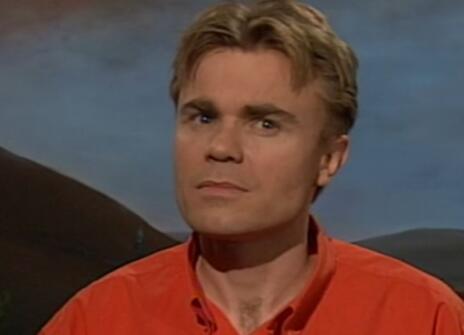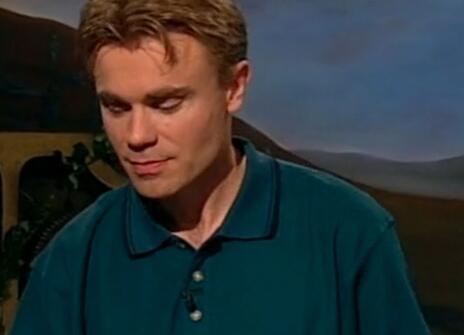Lecture 1 – Back to the future
From the 1999 Lecture programme:
When the Royal Institution was founded two hundred years ago, people thought that the Universe ran like a reliable, well-oiled clock. As a result of the pioneering discoveries of Sir Isaac Newton, the Universe was viewed as having a regular, almost predictable structure. Only a few inconsistencies seemed to remain between the predictions of Newton's theory and the observed motion of the planets.
However, one hundred years later Einstein astounded the world with his theory of relativity showing how space and time are in fact linked and that Newton's theory is, at best, just a working approximation to the truth. Einstein's work showed that time is relative as opposed to being absolute, and that nothing can travel faster than the speed of light. The cosy picture of a clockwork Universe and of universal time immediately fell apart.
However, Einstein could not answer the question as to why time only moves forwards. Nor could he establish whether time has a beginning and an end. To have any hope of answering such questions, we need to deepen our understanding of the role of time in the Universe.
A simple, yet fundamental law of physics tells us that the Universe and its contents will becomes increasingly disordered as time moves on. On the other hand, structures appear in the Universe which seem to possess some kind of order, even though they arose out of apparent chaos.
So is there a more fundamental principle at work in the Universe? If the basic laws of physics are simple, why is the Universe so complex?
About the 1999 CHRISTMAS LECTURES
Physicist Neil Johnson looks at the concept of time in these CHRISTMAS LECTURES from 1999.
From the 1999 Lecture brochure:
What is time? Can we make it go backwards? Will it ever end – if so, how and when?
In our daily lives, we often find ourselves battling against time: we may blame it for slipping by too quickly, but are unable to stop it. On other occasions, such as during the Millennium celebrations, we happily celebrate its passing. Yet what would we do without it? There would be no way of running our everyday world: no night, no day, no Christmas, and no Christmas Lectures!
Phrases such as 'time is money', 'against the clock' and 'no time to lose' are typical of our love-hate relationship with time's steady march forwards. But why forwards? And how steady? These are very difficult, yet fundamental, questions that scientists are still trying to answer.
From a mathematical point of view, time is just another 'dimension' like space. However, it is a very mysterious and fascinating one. Our world seems to depend fundamentally on the fact that time moves forwards, not backwards. Although we travel around freely in space, time travel still lies beyond us.
What is the time? That question seems like it should be much easier to answer. After all, you just need to glance at your watch. But what if you had no watch, how would you go about measuring time?
It turns out that much of our own history is intertwined with this quest. As we have refined our understanding of how to measure time, we have become aware of the crucial role it plays in our world. Early clocks such as sundials relied on the motion of the heavenly bodies. Then came mechanical devices based on the periodic motion of a swinging pendulum.
More recently, we have turned to the ultra-small quantum world to devise atomic clocks which enable us to synchronise events in different places with amazing accuracy. The reliability of modern-day navigation, commerce, telecommunications and manufacturing depends heavily on such synchronisation.
Interestingly, however, there are many phenomena in our everyday world that can not be described using a regular time-scale. Traffic jams, stock market crashes, and earthquakes all seem to arise in an irregular, almost chaotic way. Does this mean we can never predict when they will occur?
These Lectures take us on a journey through time. We will travel from the vast time-scales of the Universe bounded by the intricate fabric of space-time itself, through our rapidly changing everyday world to the ultimate limits of the unbelievably small quantum world upon which all of life ultimately depends.
Our journey touches the outer limits of the current scientific understanding of the role of time in our world. This understanding has changed dramatically since the founding of the Royal Institution two hundred years ago. As for the surprises which await us in the future, only time will tell!
However, there are many recent scientific discoveries that provide exciting glimpses as to what may lie ahead, such as teleportation, the possibilities for time travel and the fate of the Universe itself.




